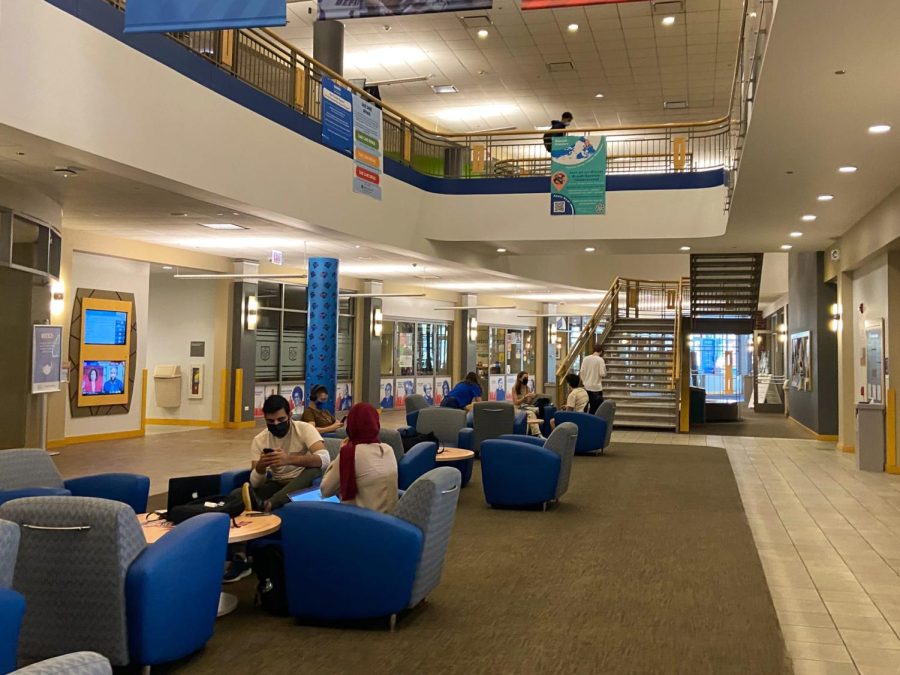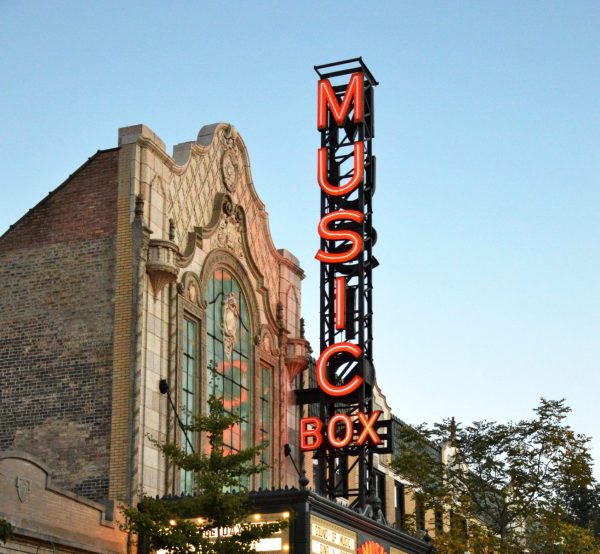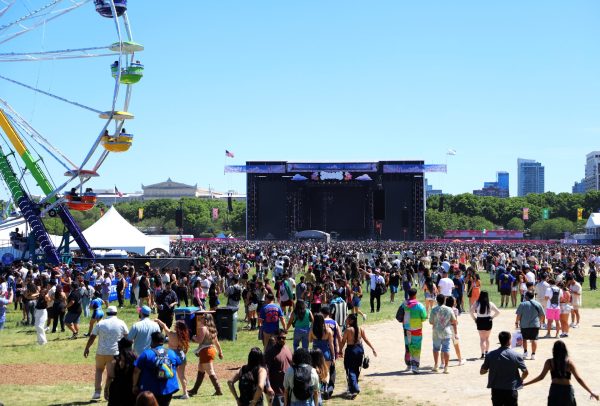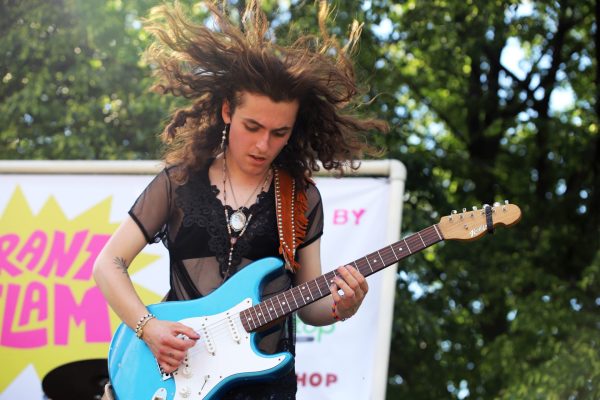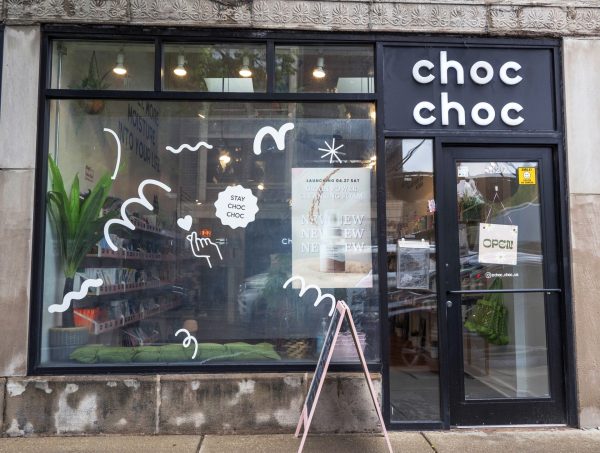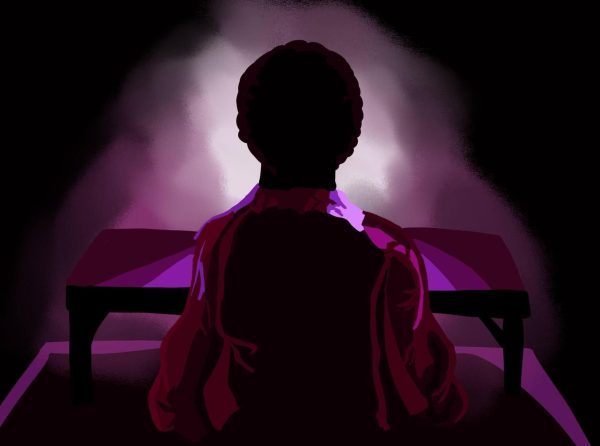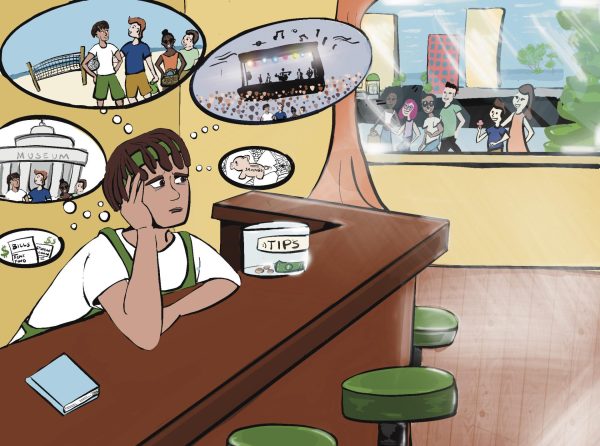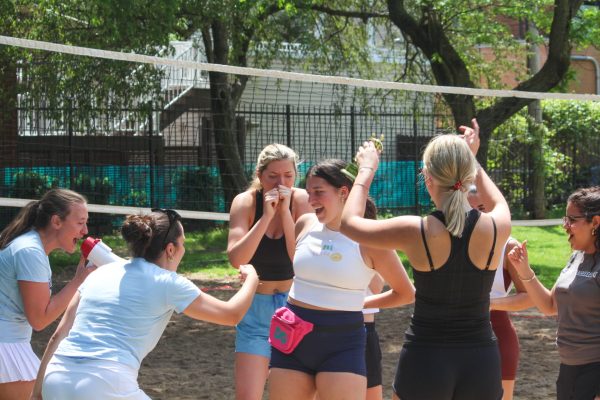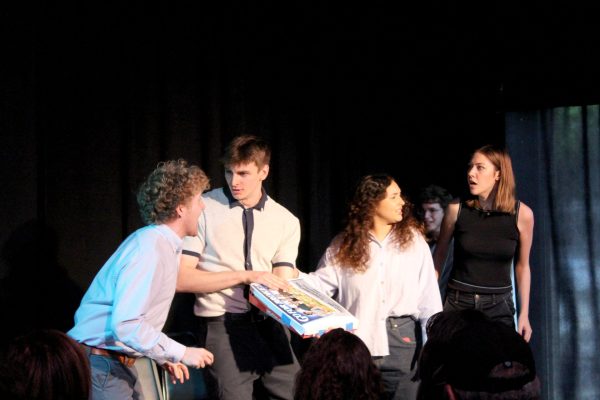College students share their thoughts on a lockdown to try to end the Covid-19 pandemic
Students in the Student Center main floor seating area. DePaul returns to in-person classes on January 18th.
While scrolling through Twitter this past Sunday, many came across this tweet from Nidal Allis asking a difficult question: “Would you agree to a true lockdown for 2 weeks to end this pandemic?”
The tweet went viral as people rushed to the comments to argue their points. Many were whole-heartedly on board with the idea. Others were skeptical on the actual effectiveness of a lockdown and considered the challenges that would arise during implementation. Everyone seemed to have a unique perspective or opinion on the matter.
The discussion led me to a thought; what if we narrowed our response demographic to college students? DePaul is currently under a two-week restriction to online classes while the Omicron variant runs rampant through the city of Chicago. Many other colleges across the country, such as Michigan State, Harvard, and Georgetown, have begun or will begin their classes online as well. While classes are only online, this isn’t classified as a total lockdown in any sense.
I conducted polls on both Twitter and Instagram asking a similar question: “College students: How would you feel about a two-week total lockdown to attempt to end the COVID-19 pandemic?”
In my tweet, the options given were:
- I think I could do it
- I can’t isolate that long
- It wouldn’t work
The results were as follows:
- I think I could do it, 38.5%
- I can’t isolate that long, 3.8%
- It wouldn’t work, 57.7%
The majority of students believe that a total lockdown simply wouldn’t work or be effective in ending the pandemic. If you scroll through the comments of Allis’ tweet, you’ll find that many of the responses share this same sentiment. @DaytimeDan replied, “There’s no such thing as a true lockdown. Who’s going to go out and cook the food and deliver it to you? Who’s going to staff the pharmacies where you go for medicine or the supermarket for supplies? It’s just not a real thing nor would it end the pandemic.”
My poll on Instagram allowed for more descriptive responses from the audience. They could respond anonymously in their own words instead of chosen answers.
The responses were as follows:
- “Better than social distancing and uncertainty for another year.”
- “Too short of a lockdown”
- “Wish it was that easy.. just like you can’t just permanently eliminate the flu.”
- “It would be cool if it would actually end it, but I don’t think it would.”
- “I would happily do it if I knew it would work for sure.”
- “Give everybody a month to prepare and it would absolutely not hurt to try.”
- “Nowhere near enough people would follow it to get the expected result.”
- “Even with a month there would still be parties/smaller gatherings and it wouldn’t end.”
- “That’s what they said two years ago.”
- “Been saying this for so long. No one can leave their house for 2 weeks. In theory, it should stop.”
Skepticism continues to be a trend in these responses. Most likely stemming from the divided state of our current society, many just don’t think we are capable of all getting on the same page.
One could argue that college students are high on the list in terms of people most negatively affected by the pandemic. In some responses, a tone of exhaustion and fatigue comes across. In others, there’s a sense of annoyance and exasperation.
For some of us, our academic progress has been stymied. Some can’t find the money to afford classes anymore because of the economic impact of the pandemic. In many cases, our mental health has been compromised. This is all communicated through these responses.
For the City of Chicago, Mayor Lori Lightfoot has already stated that she has no intentions to reimpose any lockdown measures. So, for us at DePaul, a two week lockdown may not even be a possibility.


